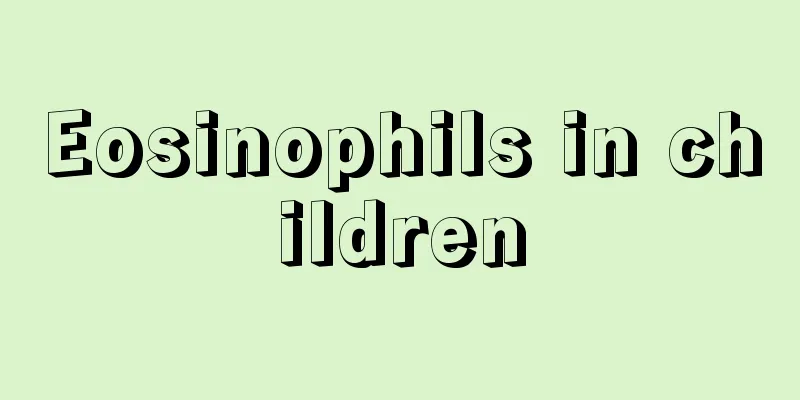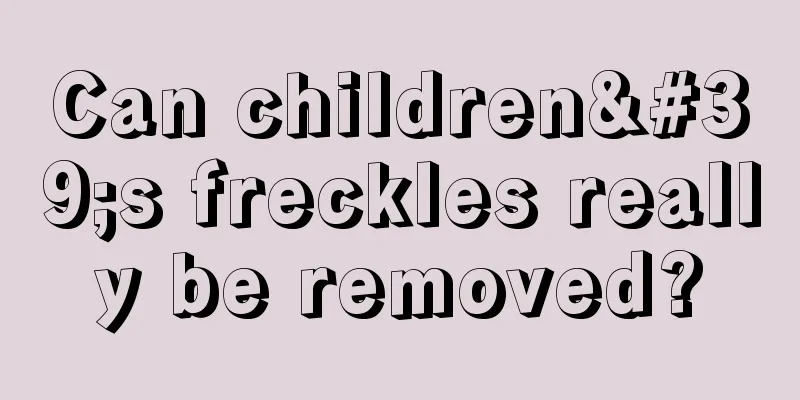Newborn tremors

|
When a newborn is born, the whole family will be very excited, and may even ignore many problems of the newborn, such as shaking hands and feet. Parents should observe more often. There are many reasons for newborn shaking, among which pathological reasons are the most common. For example, lack of vitamin D can cause shaking of hands and feet; some newborns also have shaking of hands and feet due to insufficient thyroid function. 1. What is the cause of trembling hands and feet in newborns? First of all, we must realize that neonatal convulsions have their own characteristics. Newborns rarely have typical systemic convulsions. Sometimes they only manifest as "breath holding", that is, respiratory arrest, cyanosis of the face, or only nystagmus and staring of the eyes. Therefore, the presence or absence of convulsion symptoms in newborns cannot be determined by using general convulsion symptoms and signs. Secondly, atypical convulsions of the hands and feet of newborns do not manifest as shaking of the hands and feet, but rather as back and forth swinging of the forearms or treading waterwheel-like movements of the lower limbs, or may present as paroxysmal increased muscle tone, clenched fists and flexion of the hands, and rigidity of the upper limbs. 2. Common diseases that can cause convulsions in newborns 1.Neonatal tetany. This is due to temporary physiological parathyroid insufficiency in the newborn, low phosphorus excretion capacity of the newborn's kidneys, or high phosphorus content in artificial milk, which causes low calcium and high phosphorus in the blood, leading to symptoms such as irritability, muscle cramps, cyanosis, tremors, and convulsions. 2. Vitamin D deficiency tetany. Symptoms include tetany, convulsions, and laryngeal spasm. Tetany is characteristic: the wrist is flexed and the fingers are extended. When a convulsion occurs, there is no fever or other reasons, but there is a sudden loss of consciousness, rhythmic twitching of the hands and feet, spasm of facial muscles, upward rolling of the eyeballs, and incontinence of urine and feces (infants sometimes only have facial spasms). 3. Tetany caused by calcium deficiency due to other reasons. 4. Convulsions caused by electrolyte imbalance. 5.Neonatal tetanus. 6. Convulsions caused by production injuries, congenital brain dysplasia, various acute infectious diseases, sepsis, hypoglycemia, epilepsy, etc. |
<<: 11 month old baby's teeth turn yellow
>>: Symptoms of hepatosplenomegaly in babies
Recommend
Do newborns also have false menstruation?
Many newborn baby girls may have bloody vaginal d...
What should I do if my baby has a stuffy nose in the morning?
Many young mothers will encounter the phenomenon ...
What should I do if my seven and a half month old baby is zinc deficient?
Nowadays, many newborn babies suffer from zinc de...
12-month-old baby early education
A 12-month-old baby has grown quite big, and some...
Height and weight standard table for 10-year-old girls
Children have calibrated height or weight at diff...
How to deal with a baby's low fever
Some babies often have a low fever when they are ...
What causes children to sweat?
Children are an important part of a family. Their...
What is the reason why newborn babies have red faces?
Some parents find that their children blush when ...
Do hand, foot and mouth disease blisters itch?
As we all know, hand, foot and mouth disease will...
What to do if students' eyesight deteriorates
Students' daily eye use is very demanding, no...
Why do children's joints make cracking sounds?
In life, many mothers often find that their child...
How to treat vitiligo in children effectively
Children are the hope of the motherland and the f...
Notes on sleeping time for five-month-old babies
Recently, many babies have generally suffered fro...
What is the disease that causes yellow eyes in children?
For many new mothers, they don’t know much about ...
What should I do if my child has lymph nodes?
Lymph nodes are very common in the human body and...









